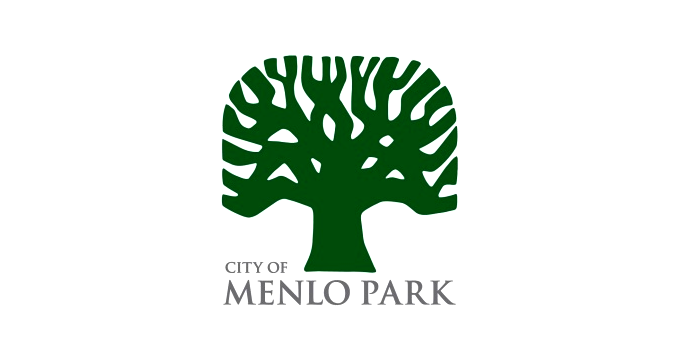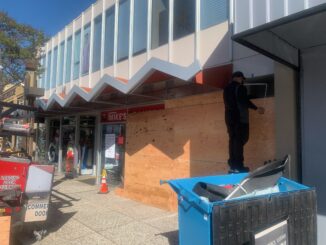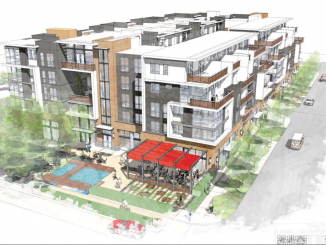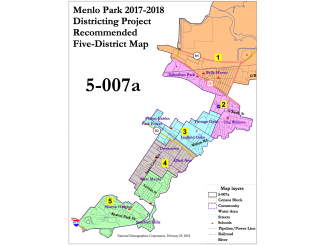
BY EMILY MIBACH
Daily Post Staff Writer
Menlo Park voters won’t get to decide on a City Charter to change how council members are elected until 2020 or even 2022, but the city is switching to district elections in this fall’s election because that doesn’t require a vote of the people.
A charter would allow the city to possibly have a hybrid council, with some seats elected by district while others would be at large. Or a charter could give the city an elected mayor and a council elected by districts. There are other possibilities as well.
The City Council had discussed whether to put the city on a fast-track to write a city charter in order to change council elections but at its Jan. 16 meeting, most of the council favored putting off writing the charter so the city could focus on other goals.
Currently, the city is a “general law” city, meaning that its rules for elections are established by state law, and state law only gives general law cities two options for electing a council — at large or by district.
But creating a city charter will give the city more options, such as hybrid elections with at-large and district representatives.
Ranked voting
Another option is ranked-choice voting, also referred to as instant run-off voting, in which voters rank their first, second and third choices. If one candidate has a majority of votes, they win.
However, if no candidate immediately gets a majority, the candidate who came in last is eliminated, and the ballots for that person are re-tallied, going to the voter’s second choice. If there are no majority winners at that point, the process is repeated until a candidate wins.
Council members Rich Cline and Kirsten Keith said they did not expect to discuss a charter because residents would not have sufficient time to learn about the charter and then vote on it in November.
Cline had said he thought putting a charter together wouldn’t be a discussion item until 2020 or 2022. A charter can only be adopted by a majority vote of residents during an even-year’s November election, according to City Attorney Bill McClure.
By hitting the pause button on creating a charter, the city can test the district-voting method it is switching to for this year’s election and likely the 2020 election.
Elections faulted
The city is switching to district elections because of a legal threat mailed to the city over the summer by Malibu attorney Kevin Shenkman, who claims he is representing a Menlo Park resident whom he has not identified. His letter says that the city’s elections are “racially polarized,” with the votes from the Belle Haven neighborhood, where a majority of the city’s Latinos and African-Americans live, being diluted by the votes from the rest of the predominately white city.
Dividing the city into five districts would make it more likely that a resident from that neighborhood might win.



